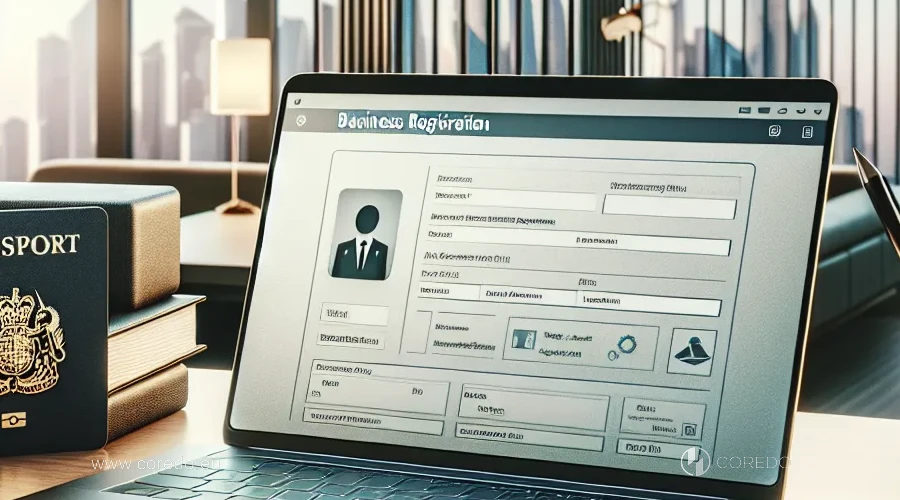In 2025, over 60% of new international companies in the MENA region choose the UAE as their launchpad – and it’s no accident. Over the past five years, the UAE has entered the top 10 global jurisdictions for ease of doing business and investment protection, with the total volume of foreign direct investment exceeding $23 billion last year. But behind this success lies not only attractive taxation: today, business registration in the UAE is a strategic tool for international trade, tax optimization, and entry into the markets of Asia, Europe, and Africa.
However, behind the outward simplicity lies a whole layer of legal, compliance, and banking nuances that can become either a growth point or a source of serious risks. Why do some companies scale and attract venture investments through Hub71 or DIFC FinTech Hive, while others face account blockages or license refusals? How to choose between mainland and free zone to retain control over your business and ensure AML compliance?
In this article, I, Nikita Veremeev, share practical strategies and experience from COREDO on registering and supporting businesses in the UAE. If you want not just to open a company, but to create a protected, scalable, and compliant structure, read to the end. Here you will find answers to questions not discussed in open sources, as well as checklists and recommendations tested in practice.
Opening a Company in the UAE for Business

Opening a company in the UAE: it’s not just registering a legal entity, but a strategic decision affecting tax efficiency, access to capital, and scaling opportunities. COREDO’s experience confirms: the right corporate structure in the UAE not only minimizes tax burden but also builds a flexible model for international trade and investment.
Corporate Taxes and Benefits in the UAE 2025
Since 2023, the UAE has implemented a 9% corporate tax for companies with profit exceeding 375,000 AED – one of the lowest in the world among developed jurisdictions. Up to this threshold, a 0% rate applies, making the UAE extremely attractive for startups and small businesses. For international holdings and trading structures, the ability to tax plan through double taxation avoidance agreements, of which the UAE has over 130, is crucial.
COREDO’s practice shows that ignoring these requirements leads to the risk of losing benefits and fines.
Free Economic Zones and Mainland: Comparison
Choosing between free zone and mainland: a key stage of strategic planning. Free economic zones (more than 45 of them) offer 100% foreign ownership, quick startup, and minimal office requirements. This is optimal for e-commerce, IT companies, international trade, and startups targeting export. Mainland is suitable for those planning to work with the UAE market, participate in government tenders, and build offline infrastructure.
| Criterion | Free Zone | Mainland |
|---|---|---|
| Foreign Ownership | Up to 100% | Up to 100% (since 2021) |
| Corporate Tax | 0% or 9% | 9% (above 375,000 AED) |
| Operations within UAE | Restricted | No restrictions |
| Licenses | Specialized | Universal |
| bank account opening | Easier | More difficult |
| Office Requirements | Flexible | Stricter |
| Currency Control | Minimal | Almost absent |
Innovative Ecosystems and Venture Capital
UAE: one of the few markets where the state actively supports startups and tech companies through business incubators and accelerators like Hub71, In5, DIFC FinTech Hive. Venture investments in the UAE annually exceed $1 billion, and participation in accelerators opens access to international partners and grants.
The COREDO team has implemented projects for the registration of IT companies and fintech startups, which, thanks to proper licensing and support, received investments from ADGM and DIFC funds. For e-commerce and SaaS platforms, free zones offer special licenses and tax incentives, accelerating business scaling through the UAE into Asian and European markets.
Business Registration in the UAE: Challenges

Despite the apparent advantages, opening a business in the UAE comes with a number of challenges that are often underestimated by foreign founders. Our experience at COREDO showed: success depends not only on the choice of jurisdiction but also on strict compliance with compliance procedures, structure transparency, and skilled risk management.
Restrictions on Foreign Ownership: What Business Forms to Choose
Although 100% foreign ownership has been allowed in most sectors since 2021, certain industries (e.g., strategic or related to national security) still require local partner participation. It is important to consider corporate governance requirements, the appointment of a secretary, the disclosure of beneficial owners, and the minimum authorized capital (from 0 to 50,000 AED depending on the license).
AML, KYC, and Compliance: How to Avoid Fines
The UAE has integrated international standards in AML/KYC and is actively implementing automatic tax information exchange (CRS, FATCA). Compliance procedures include mandatory due diligence of founders, verification of sources of funds, disclosure of beneficiaries, and economic substance. Special attention is given to CbCR (Country-by-Country Reporting) for international groups.
Opening an Account for a Company in the UAE
Bank compliance in the UAE has become one of the strictest in the region: banks require a transparent structure, confirmation of economic substance, disclosure of ultimate beneficiaries, and a business plan. The time to open an account ranges from 2 to 12 weeks, and the likelihood of refusal for companies with opaque structures exceeds 50%.
Business Registration in the UAE for Non-residents

The registration of a company in the UAE for a foreign founder is a step-by-step process requiring strategic planning and precise adherence to procedures. Below is a step-by-step algorithm that COREDO uses when working with international clients.
Choosing Jurisdiction and Corporate Structure
The first step is determining the target market (local or international), analyzing the benefits of mainland and free zone, as well as the possibility of creating an offshore UAE company for holding or investment purposes. It is essential to consider corporate governance requirements, office presence, number of directors, and corporate secretarial support.
How to Obtain a License and Register Statutory Documents
Next, select the corporate license (IT, e-commerce, trade, fintech, etc.), prepare statutory documents, determine authorized capital (from 0 to 50,000 AED), and collect documents for regulator submission. For some licenses, prior approval from relevant authorities is required.
Opening an Account and Passing AML/KYC
After obtaining a license, go through compliance procedures: prepare KYC profiles of founders, disclose sources of funds, and conduct due diligence. Only then does the bank consider the application for account opening. It’s important to prepare a business plan, office lease, and confirmation of economic substance in advance.
Registration of an IT Company in the UAE
Registering an IT company in the UAE requires choosing a free zone with a suitable infrastructure (e.g., Dubai Internet City, In5, Hub71). For e-commerce, there are special licenses allowing international payments and protecting intellectual property. COREDO’s practice shows: a well-chosen zone and license accelerate market entry and reduce compliance costs.
Corporate Reporting and Audit: Requirements

Since 2023, UAE has tightened requirements for corporate reporting and audit. All companies in the mainland and most free zones are required to maintain international reporting, undergo annual audits, and confirm economic substance (economic substance requirements). For international groups, CbCR reporting is mandatory.
COREDO supports clients at all stages: from auditor selection to implementation of internal control systems and ESG compliance. Failure to meet requirements threatens fines and loss of tax benefits.
Legal Support for Business in the UAE

Legal support in the UAE is not only company registration but also continuous monitoring of legislative changes, corporate risk management, and intellectual property protection.
Internal Control in Corporate Governance
Effective corporate governance in the UAE is built on the transparency of structure, regular updates of corporate documents, implementation of compliance procedures, and internal control. Corporate secretarial support and ESG factors are becoming mandatory for companies targeting international markets and attracting investments.
Protection of Intellectual Property and Assets
Intellectual property protection in the UAE requires timely registration of trademarks, patents, and copyrights, as well as the implementation of data protection and cybersecurity mechanisms. For cross-border transactions and international payments, COREDO develops strategies to minimize currency and reputational risks.
Business through UAE: Entry into New Markets
The UAE is not only an optimal jurisdiction for business registration but also a strategic hub for scaling into the markets of Asia, Europe, and Africa. International trade through the UAE is facilitated by free trade agreements, developed banking infrastructure, and support for strategic alliances.
COREDO’s experience shows: opening a branch in the UAE, business migration, and employee relocation allow rapid adaptation to new markets and reduce regulatory barriers. Strategic planning for entering new markets is built on an analysis of tax, legal, and operational risks.
Practical Tips for Entrepreneurs
Checklist for Business Registration in the UAE:
- Determine the target market and suitable jurisdiction (Free Zone/Mainland)
- Conduct preliminary due diligence and prepare statutory documents
- Obtain the necessary license (IT, e-commerce, trade, etc.)
- Complete AML/KYC procedures and open a corporate bank account
- Set up internal control and corporate governance systems
- Ensure compliance with economic substance and reporting requirements
- Protect intellectual property and assets
- Develop a strategy for scaling into international markets
Mistakes to Avoid:
- Ignoring economic substance and corporate reporting requirements
- Choosing an unsuitable free zone or license without considering business specifics
- Underestimating the complexity of banking compliance and AML/KYC procedures
- Lack of asset and intellectual property protection strategy
Practical Advice:
- For IT and e-commerce, choose free zones with developed infrastructure and startup support
- For trading in the domestic market: consider mainland with a universal license
- Implement internal compliance and ESG procedures from day one of operation
- Engage professional partners to handle complex procedures
Questions about Opening a Company in the UAE
Step-by-step: choose jurisdiction (mainland or free zone), prepare statutory documents, obtain a license, complete AML/KYC procedures, open a bank account, set up corporate governance.
Corporate tax, 0% up to 375,000 AED profit, thereafter: 9%. VAT (VAT) – 5%. It is important to comply with economic substance and reporting requirements.
It is necessary to prepare KYC profiles of founders, disclose sources of funds, complete due diligence, and comply with international AML/KYC standards.
In mainland and most free zones – mandatory international reporting, annual audit, economic substance confirmation, CbCR for groups.
Depending on business goals: for international trade and IT: free zone; for working in the UAE market: mainland; for investments, UAE offshore company with a transparent structure and corporate governance.
My experience and COREDO’s practice show: success in the UAE is the result of precise planning, professional support, and constant monitoring of legislative changes. If you are looking for not just registration, but strategic partnership and long-term protection of interests, COREDO’s team is ready to offer solutions tested by time and international practice.